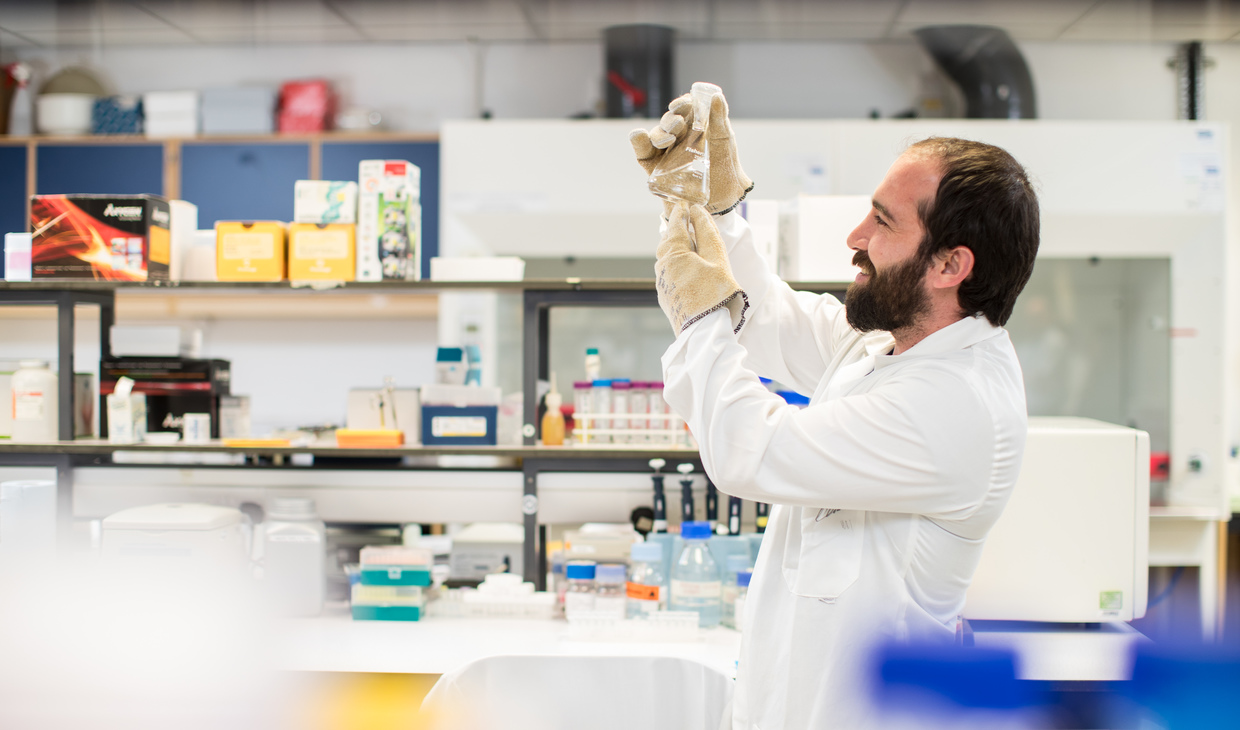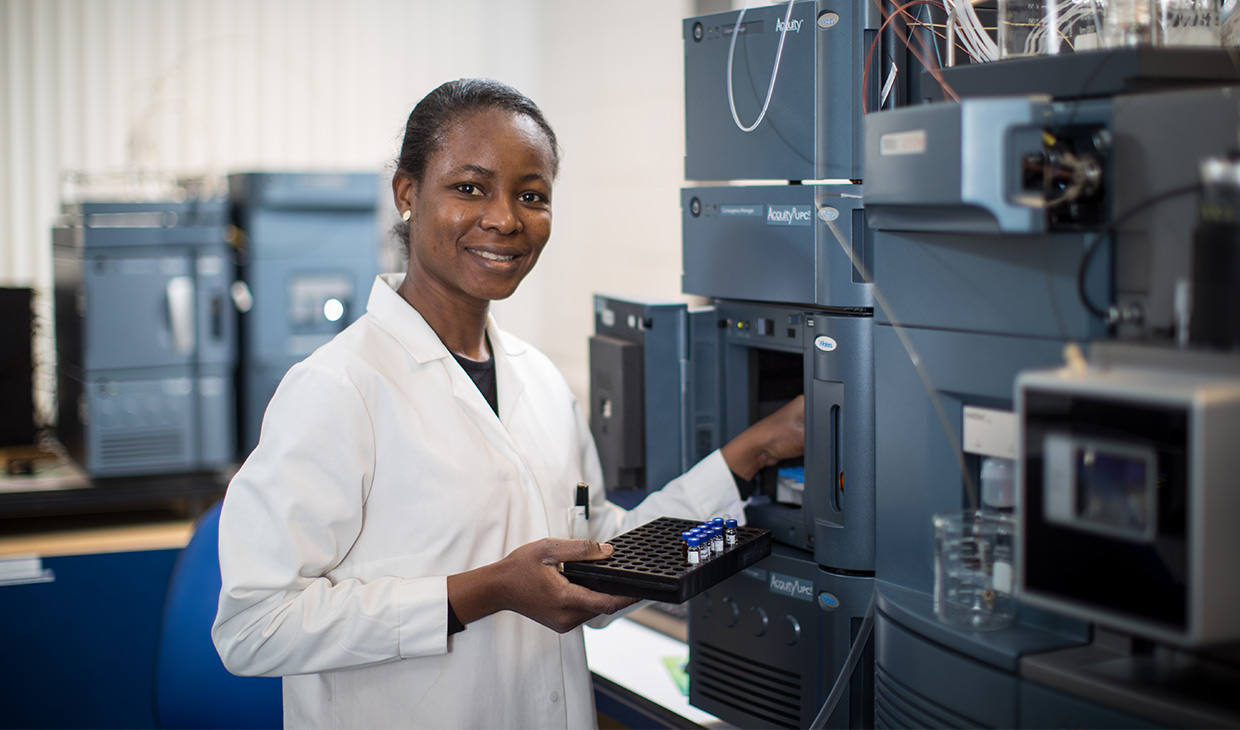Aquaculture: feeding the future by helping the fish farm industry
Our research developed an international pest management strategy to minimise the damaging impact of sea lice – which are parasites that kill huge numbers of salmon, and cost the global fishing industry more than €305 million each year.
In REF 2021 our aquaculture research scored highly, with 100% of research impact classed as world-leading, the highest possible rating. 100% of our research environment is classed as world leading or internationally excellent.
Biological and Environmental Sciences: conserving the bumblebee
Biological and environmental scientists at Stirling are leading vital research into the survival of bumblebees to prevent further decline in current populations. Our efforts helped to establish the Bumblebee Conservation Trust, which has in turn inspired more than 12,000 people to get involved in bumblebee conservation projects and set up the first-ever bumblebee nature reserve in the UK. Our research played a key role in the European Union’s announcement declaring a two-year moratorium on the use of neonicotinoid insecticides on flowering crops.
In the most recent Research Excellence Framework (REF 2021), 100% of our Biological and Environmental Sciences research was rated as having either outstanding or very considerable impact – ranking us joint 12th in the UK for Geography and Environmental Studies research.




